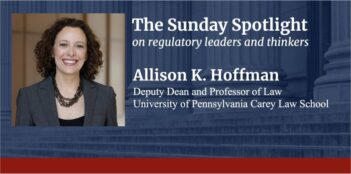
U.S. cities file suit to force the Trump Administration to keep Obamacare alive.
If the President of the United States opposes a bill passed by Congress, he may veto it. But is he allowed to sabotage through executive action a law passed by Congress and signed by an earlier President? This is the central question in a recently filed lawsuit against the Trump Administration that alleges the Administration has intentionally acted to undermine the signature health insurance reform legislation signed by President Barack Obama.
In the lawsuit, five U.S. cities accuse President Donald J. Trump and officials at the U.S. Department of Health and Human Services (HHS) of illegally “sabotaging” the Patient Protection and Affordable Care Act, which is known to some as Obamacare. Citing the Administrative Procedure Act and the U.S. Constitution, they seek to have a federal court order the Administration to implement the Affordable Care Act as Congress intended.
The lawsuit alleges that President Trump and his Administration have failed to satisfy the constitutional requirement to “take Care that the Laws be faithfully executed.” The Administration argues that courts cannot enforce the Constitution’s take care clause because that clause gives a President total discretion over policy decisions.
The lawsuit takes issue with many actions taken by the Trump Administration and HHS. Such actions include outreach and advertising cuts, shortening open enrollment periods for health insurance purchase, and promoting plans that do not provide the coverage required under the law. The cities contend that the Administration’s actions have led to increased premiums and lower-quality coverage, which in turn has increased the number of people without adequate health insurance. Ultimately, the cities argue that they are left footing the bill for health care costs that their residents cannot afford. Chicago, for example, claims to have spent $53 million in 2017 on ambulance services the city provided to uninsured patients who did not pay the subsequent bill.
The cities argue that certain administrative actions on the part of HHS—such as allowing the states to supervise the federal insurance exchanges and adding income verification requirements to applicants—violate the Administrative Procedure Act because they are inconsistent with the purposes of the Affordable Care Act. The Administrative Procedure Act permits federal courts to set aside agency actions that are “arbitrary and capricious” or not “otherwise in accordance with the law.”
According to the complaint, President Trump’s own statements about the Affordable Care Act reveal his intent to undermine the law. In July 2017, for example, he tweeted that he wanted to “let ObamaCare fail.” In October 2017, amid the congressional battle over the potential repeal of the Affordable Care Act, he further tweeted that, “since Congress can’t get its act together on HealthCare, I will be using the power of the pen.”
The cities also point to President Trump’s actions while in office to show his intent to “sabotage” the health care law. Just hours after taking office, he signed Executive Order 13,765, which directs his Administration to “seek the prompt repeal of the Patient Protection and Affordable Care Act.” In October of 2017, President Trump signed Executive Order 13,813, which directs his Administration to prioritize regulatory changes that increase the availability of potentially non-compliant insurance plans, such as association health plans and short-term, limited-duration insurance, which do not provide the minimum coverage normally required by the Affordable Care Act.
In response, the Trump Administration argues that the take care clause assigns wide discretion to the President to make policy decisions and does not give plaintiffs a basis with which they can challenge presidential decisions. The Trump Administration emphasized that such use of the take care clause would improperly intrude on the role of the Chief Executive, saying “The Executive actions challenged in this case underscore the significant separation of powers constraint on this Court’s review.”
Instead, the Trump Administration argued that all claims should have been brought under the Administrative Procedure Act, but that even under the statute the Administration’s actions were permissible.
Constitutional scholars note that the U.S. Supreme Court has largely left unaddressed the scope of the take care clause, which means that debate over the significance of the clause has developed in academic discourse.
Several scholars have previously taken positions similar to the arguments made by the cities in their challenge to the Trump Administration’s actions. Yale Law School Professor Abbe Gluck suggests that the duty to faithfully execute laws entails ensuring “that our laws are implemented in good faith” and using “executive discretion reasonably toward that end.” Similarly, Harvard Law School Professor Noah Feldman contends that the Constitution “recognizes that the president can’t necessarily enforce every law. But it requires a good faith effort.”
Such arguments about the take care clause arose in a recent U.S. Supreme Court case about whether President Obama acted unlawfully in delaying the deportation of millions of undocumented immigrants. The Supreme Court, sitting with only eight justices, produced a 4-4 tie, and the ban put in place by the appellate court remained in effect. The decision thus failed to produce any binding articulation of what the President is required to do under the take care clause.
Ultimately, even if courts should find that President Trump has illegally “sabotaged” the Affordable Care Act, legal scholars are divided as to whether the Constitution provides a remedy. In an opinion piece from 2018, Professor Nicholas Bagley of the University of Michigan Law School and Gluck argued that a federal court would have the ability to set aside the challenged actions under the take care clause. University of San Diego School of Law Professor Michael Ramsey, on the other hand, suggests that the remedy is a political one: the electorate must decide at the ballot box to vote a President out of office.
Some consider the cities’ lawsuit against the Administration to be a long shot. Gluck concedes that the take care clause “does not appear to ever have been used successfully in modern times as an offensive tool against a president.” At the same time, Gluck and Feldman stress that “if there is ever going to be a viable claim along these lines, this is it.”



